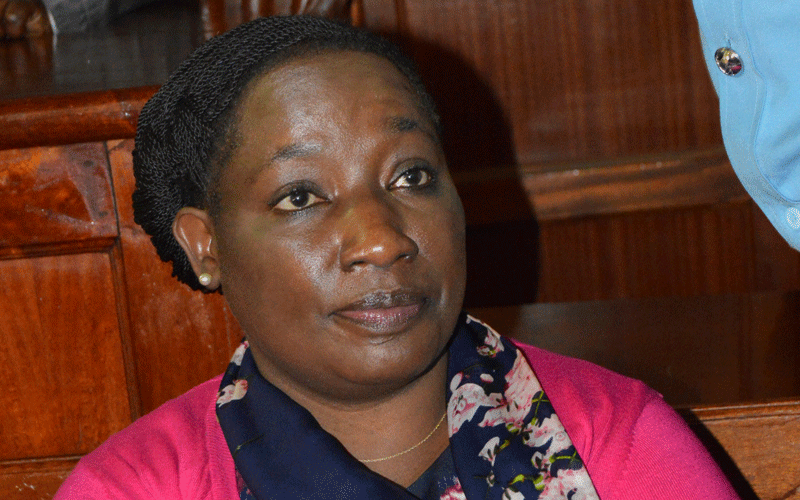Judge awards PS Omolo Sh1 for unlawful sacking
By Bernice Mbugua, October 23, 2020Employment and Labour Relations Court has awarded former Youth and Gender Permanent Secretary (PS), Lilian Omollo one shilling for unlawful dismissal from her position.
Justice Stephen Radido ruled the manner in which she was removed from her position was unconstitutional.
The Judge, however, noted the former PS was found by the High Court to be the beneficiary of proceeds of crime and the court was not informed whether the decision had been appealed against.
“A declaration is hereby issued that a Principal Secretary is entitled to the protections assured public officers by Article 236 of the Constitution…
The Petitioner is awarded a nominal Sh1/- (ONE) for the violation of her right to due process,” ruled the Judge.
Justice Mumbi Ngugi had on April this year ruled that the former PS had failed to explain the source of the funds held at Sahara Consultants, Lidi Holding Limited, Lidi Estates Limited, and by Stephanie Marigu Mbogo, Sheela Wangari Mbogo and Shalom Malaika Kamweti.
According to the Judge the only conclusion was that the funds were proceeds of crime and directed the forfeiture to the State of Sh30 million held in her bank accounts.
Omollo was suspended from her post in 2018 after she was charged in the NYS 11 scandal.
On May 19, the Public Service and Gender Cabinet Secretary informed her that her appointment had lapsed with the appointment of another person to the office of Principal Secretary.
Aggrieved, she moved to court alleging the decision violated Articles 10, 41 and 236 of the Constitution.
She argued that the actions of removal from the payroll and appointment of a replacement, derogated from the constitutional requirement to be presumed innocent and was illegal and unconstitutional and violated her rights.
Justice Radido, however, observed her right to be presumed innocent was not violated when she was placed under suspension.
Omollo had also argued that Article 155 of the Constitution did not provide the manner of dismissal of a Principal Secretary and that it could not be taken that they serve at the pleasure of the President.
Criminal case
She contended that under the statute she was charged under before the Magistrates Court, she could only be removed from office upon conviction and therefore the revocation of her appointment before the conclusion of the criminal case was contrary to the law
Justice Radido, however, noted that the power to remove a Principal Secretary is placed upon the President and Article 135 of the Constitution requires such decisions to be made and reasons given under the hand of the President.
“The Respondents did not exhibit any such decision under the hand of the President…The Petitioner was not subjected to due process, nor was she given reasons for the removal from office under the hand of the President.
She was ingeniously notified that her tenure had ended because a replacement had been appointed,” ruled the judge.
More Articles

